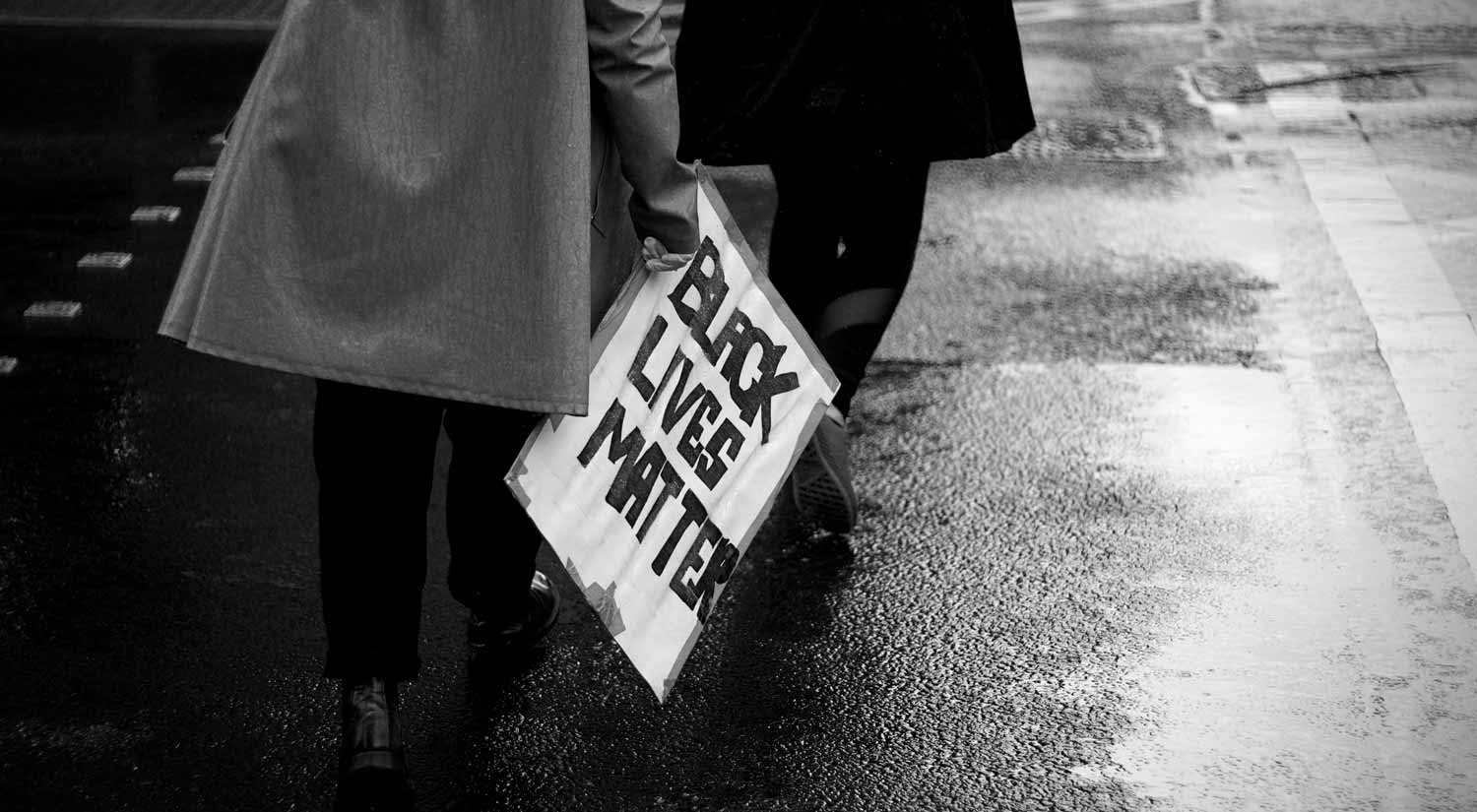An adapted excerpt from Lama Rod Owen’s recent book “Love and Rage: The Path of Liberation Through Anger” (2020) – shared with permission
Blackness and anger are not the same thing. This has taken me years to understand. Blackness for me is an identity location that not only articulates my race and my ancestral African roots, but is a political identity that speaks of how those like me have survived systematic violence, marginalization and cultural erasure in a social context that was created to use my body for production and now sees my body as expendable. I believe the Movement for Black Lives emerged to highlight this violence while at the same time seeking to restore value and care to the lives of Black folks. Yet this political Blackness also embraces the lives of all people who survive systems of racial violence. My identity as being Black means that I am always on the side of those of us who are targeted by systematic violence—including but not limited to racism, queerphobia, transphobia, misogyny, ableism and ageism—translating into a personal slogan of mine, which is that if you are marginalized, you are Black.
However, my Blackness is not anti–white people; it is anti-oppression, including anti–white supremacy. My expression of Blackness is a recognition that we are all indoctrinated into systems of dominance and oppression, yet it is up to people to do their work of undoing their role in maintaining dominance. Moreover, my expression of Blackness is a demand that this work be done. In my experience, when white folks hear me or others speak of white supremacy, there is a tendency to hear this critique as a personal attack rather than an invitation to understand how whiteness in America is and remains an expression of dominance if there is not effort to interrogate this expression. To be white is to be racist. That’s how America was established. I am deeply hurt by this system, and that hurt means that I experience being pissed at the system of white supremacy as well as how white folks continue to buy into this system.
When I first started practicing meditation, I had to start confronting difficult mental states like anger. Even early on in my practice, I knew that my anger was important and that it was connected to the pain that I was experiencing having been raised Black in this country. Yet when I started getting space around my anger, I found myself experiencing so much spaciousness in my mind around the anger that I was getting concerned whether I was becoming less Black! I experience a lot of settledness from this spaciousness. Some may view my settledness as apathy. However, my experience in the moment is one of having space around what I feel and thus having the agency to make decisions about how to react to what I am feeling. When I am pissed, I can feel the energy of being pissed, but I am not trapped in a compulsory relationship with that energy. This settledness is an expression of wisdom in relation to all my emotions. I am Black and many other things. But to be Black- identified does not mean that I am also anger-identified. To be Black has come with significant woundedness and trauma from having to survive a white supremacist culture and having to hold the transhistorical trauma of my ancestors who also survived the same trauma and passed it on unknowingly to me. Yet because of my meditation practice, I have an experience of Blackness that is based upon resiliency, community, deep joy in the face of violence, and a profound gratitude for my culture that continues to transform marginalization into celebration. My trauma and anger are still a part of this celebration, but they are not what Blackness means. They are only some of the struggles of being in this system.

